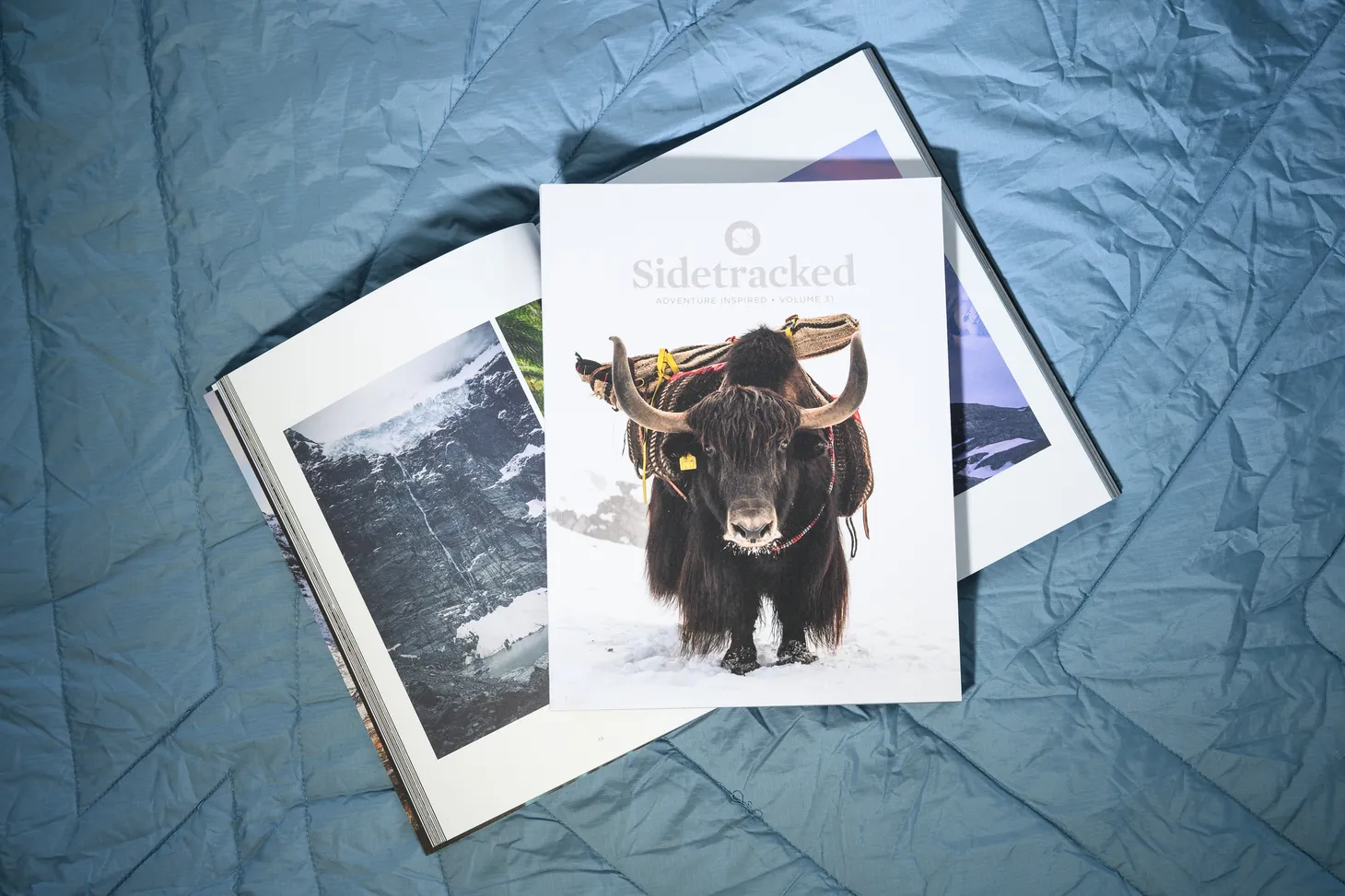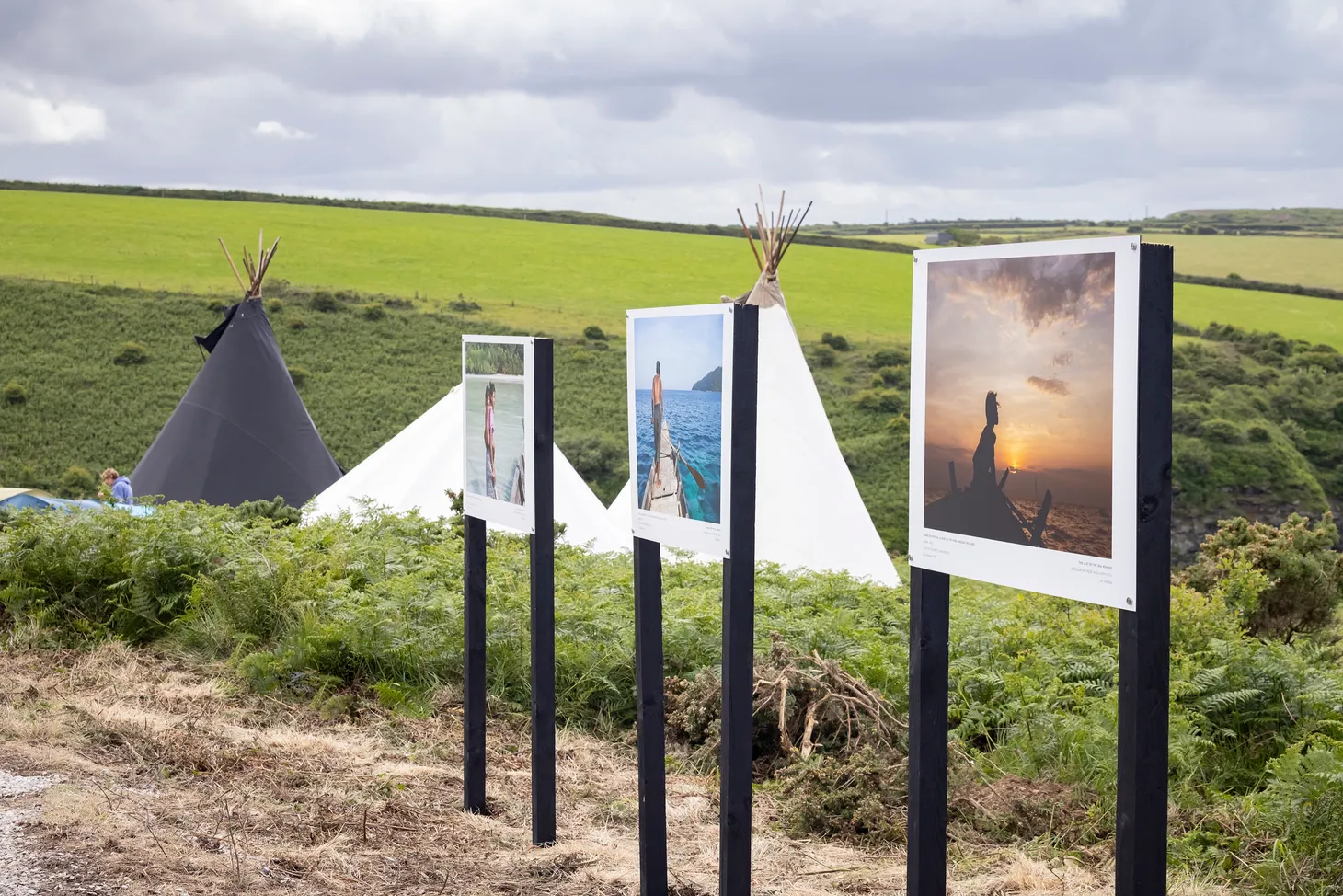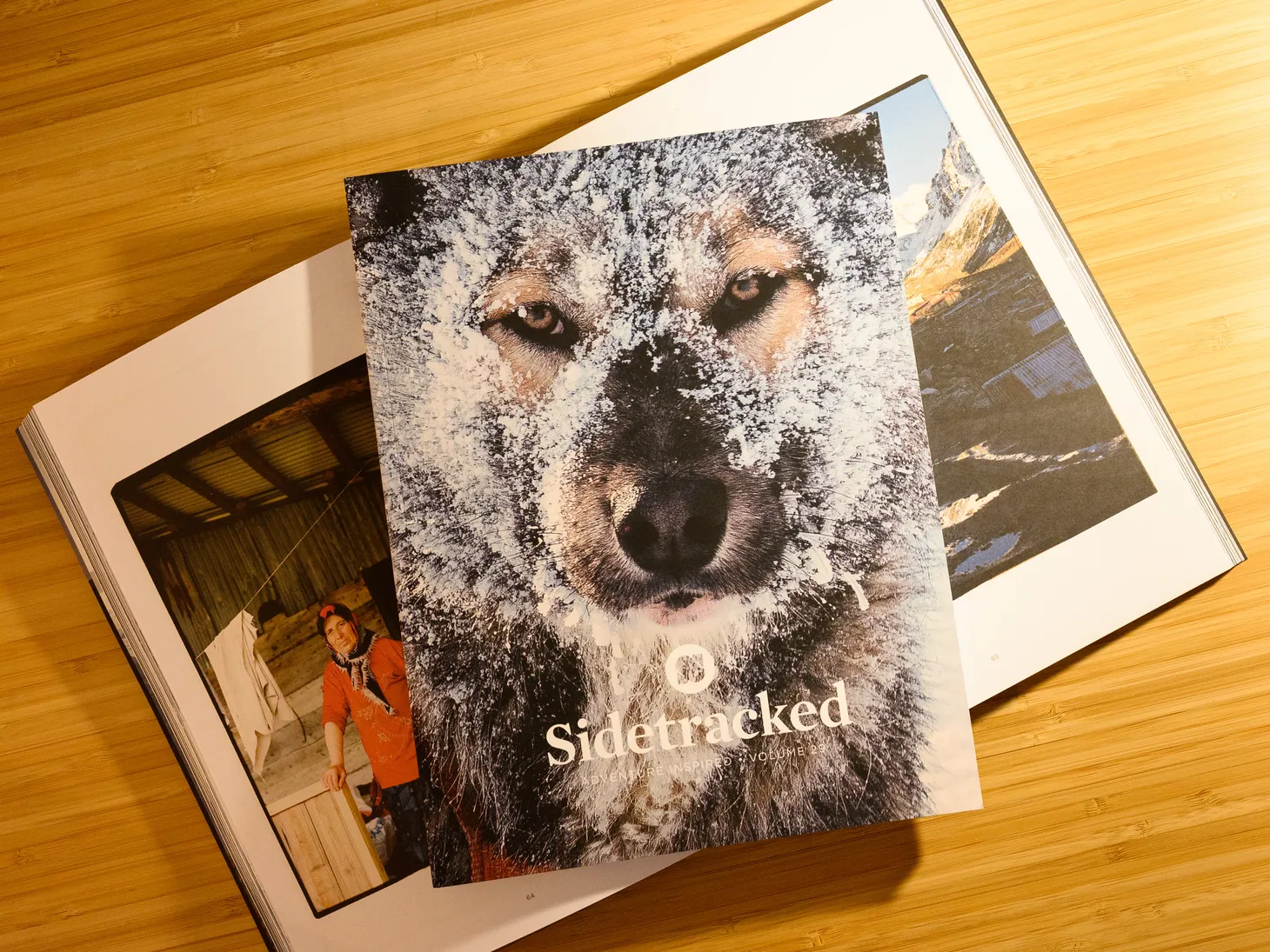Páramo: building blocks for the future
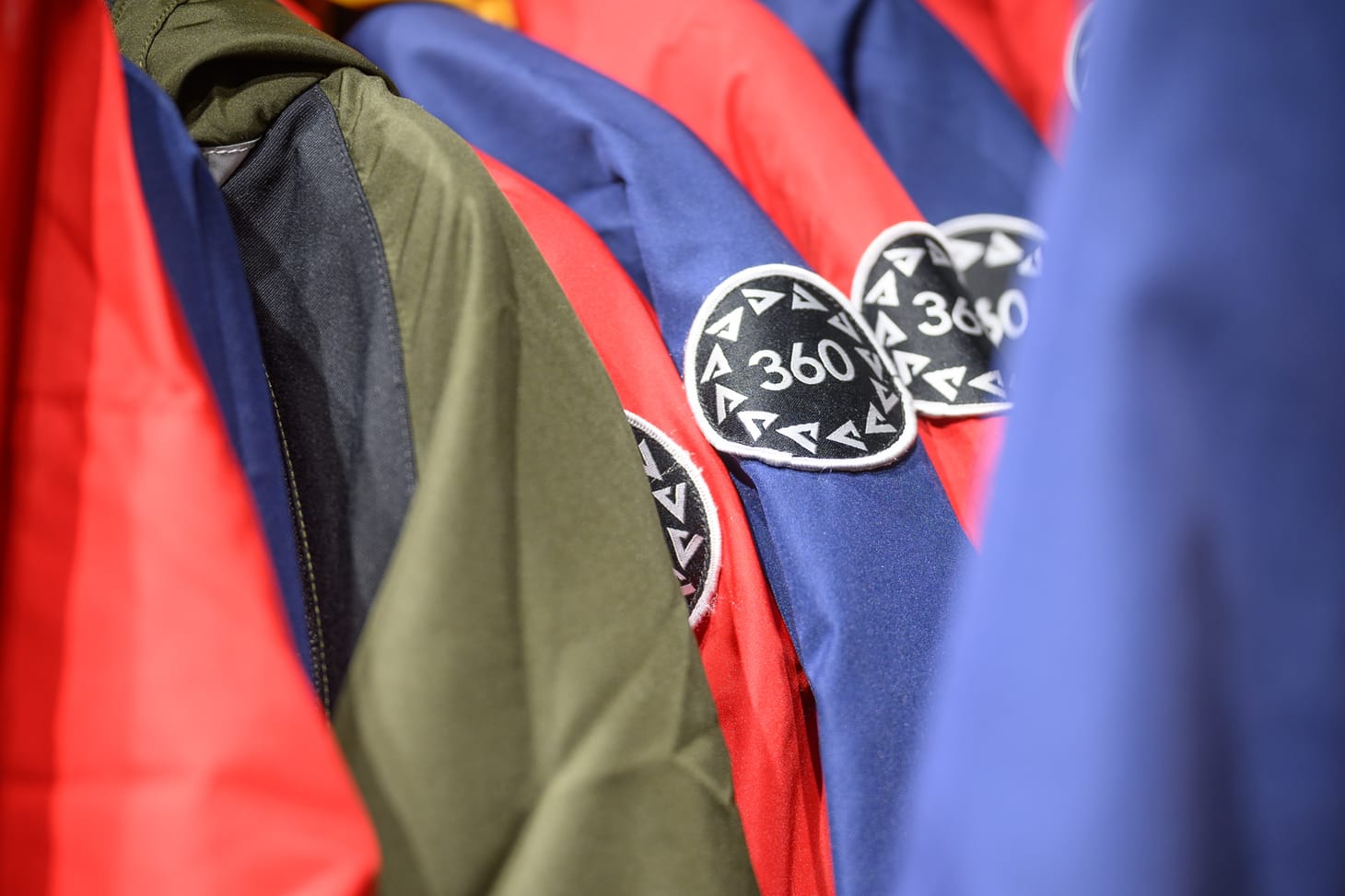
Páramo Directional Clothing is one of those outdoor gear brands you'll almost certainly have an opinion about. Saying they're a Marmite brand might be overstating it, but outdoor enthusiasts often either steer well clear or are ardent lifelong fans. I don't quite identify as either, but I'm closer to the latter end of the spectrum.
Love them or hate them, they've been doing things differently from the beginning, and I recently picked up some fascinating insights about their product strategy, plans for the future, and how they hope to be ahead of trends that might eventually affect global supply chains.
I've always admired how Páramo garments are as close to buy-it-for-life products as technical outdoor clothing can be. They're durable, repairable, made for easy recycling, and the brand resists consumerist traps such as faddish trends or inbuilt obsolescence. Unlike many other brands, they want you wearing the same jacket for 25 years. I really admire that. They're also socially progressive, supporting ethical manufacturing through the Miquelina Foundation and employee ownership through their Employee Owned Trust. More businesses should be more like Páramo.
Oh, and the kit works, too. It doesn't work 100% perfectly in 100% of scenarios, but when it works it's often the best thing.
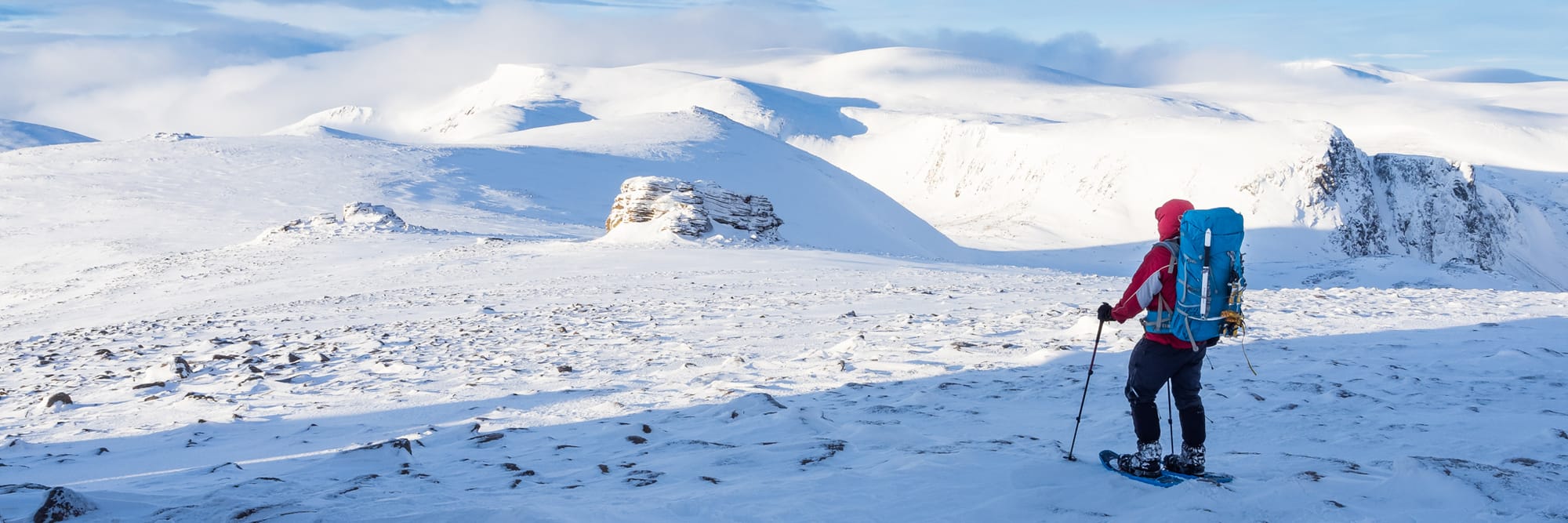
A chat with Richard Pyne, CEO of Páramo
Back in September, as part of the long-running series of Stories Behind the Gear articles we run on the Sidetracked Field Journal, I interviewed Richard Pyne. Although the published interview (read it here) is 2,000 words long, I had to heavily chop this down from our full discussion, which lasted for almost 90 minutes.
Turns out that Richard is an excellent interviewee – as well as a fascinating person to chat with about life, the universe, and everything.
I already knew the broad strokes of Páramo's origin, started by Nick Brown back in the 1990s, but some of the decisions the company made back then are only now starting to make full sense. For example, Páramo garments have always been made primarily from a single material, designed without glues, laminates, or taped seams. That makes them easier to both repair and recycle. Páramo were doing this decades before other brands were even thinking about it.
The brand is now aiming for circularity – that is, avoiding the use of virgin materials as much as possible. They're investing in chemical recycling (which is phenomenally expensive) and repair (which is time-consuming skilled work). The thing that most interested me about this part of our chat is that Richard doesn't foresee a problem with convincing other brands to use more recycled materials. The problem is that scenarios could arise in which the industries – such as packaging and bottling – currently selling recycled polyester to the outdoor industry might stop doing so. If other brands don't input garments into the system, supplies of recycled polyester could dry up.
This led to a big, rambling, fascinating discussion about the entire global economy and how it's all connected. He painted a picture in which the outdoor industry can create a cascade of positive change across vast swathes of manufacturing. I hope he's right about that.
Richard really was a pleasure to interview. Unlike other CEOs I've interviewed, sticking rigidly to some agreed party line, Richard came across as a genuine outdoor enthusiast with a strong awareness of the shades of grey inherent to all this. A couple of areas of our chat were off the record, and I really appreciate that level of trust.
Here's the link to my interview again.
At the Páramo Fort William store opening
On October the 8th, I was invited to a media event in Fort William for the opening of Páramo's latest bricks-and-mortar store. They now have five – and when I spoke to Samantha Theron, Páramo's Head of Marketing and Communications, she indicated that they plan to open more.
This mirrors something Richard told me. Unedited transcript from our chat:
You know, for 30 years we've had lots of independent retailers across the country who have done fantastically for us. Sadly, a lot of them are now retiring or struggling. The independent outdoor [trade] is... I don't think either of us would decide to open a shop at the moment. It would be a tricky, tricky time. But, understanding that, we're opening more of our own stores now to try and fill some of those gaps, give people the service and the time they need to just make sure it's right... make sure they're buying the right thing for what they're doing, for their activity, that they understand how to look after it. I guess just prioritising the customer and their needs is key, really.
I had never visited a Páramo store before, but what Richard told me turned out to be bang on. These places really are designed around giving the customer the service they need, creating local centres of knowledge and support. Because, for better or worse, I think that Páramo products need that.
Look, if you're buying a Gore-Tex jacket, it says 'Guaranteed to keep you dry' on it and you pretty much know what to expect (personally I think the tagline is a lie, but at least it's simple). But a Páramo jacket is a big bundle of nuances and caveats – especially if you've come from the Gore-Tex world. If you run hot, you need to know which garments will be too warm for you in which seasons, and you need to know about things like venting and the different kinds of Pump Liner. You'll need to adjust your layering system. You'll also need to know about fit (baggy is good for Páramo), aftercare (Nikwax), and many other things.
One of Páramo's key challenges has always been education, because it's a more complicated story than your standard waterproof/breathable membrane. Fail to learn about these and the result can be unmet expectations and disappointment. There are different advantages, disadvantages, and trade-offs. These stores are about creating local touchpoints to help them with that goal of greater education, and Fort William, as one of the country's key outdoor hubs, is a canny choice.
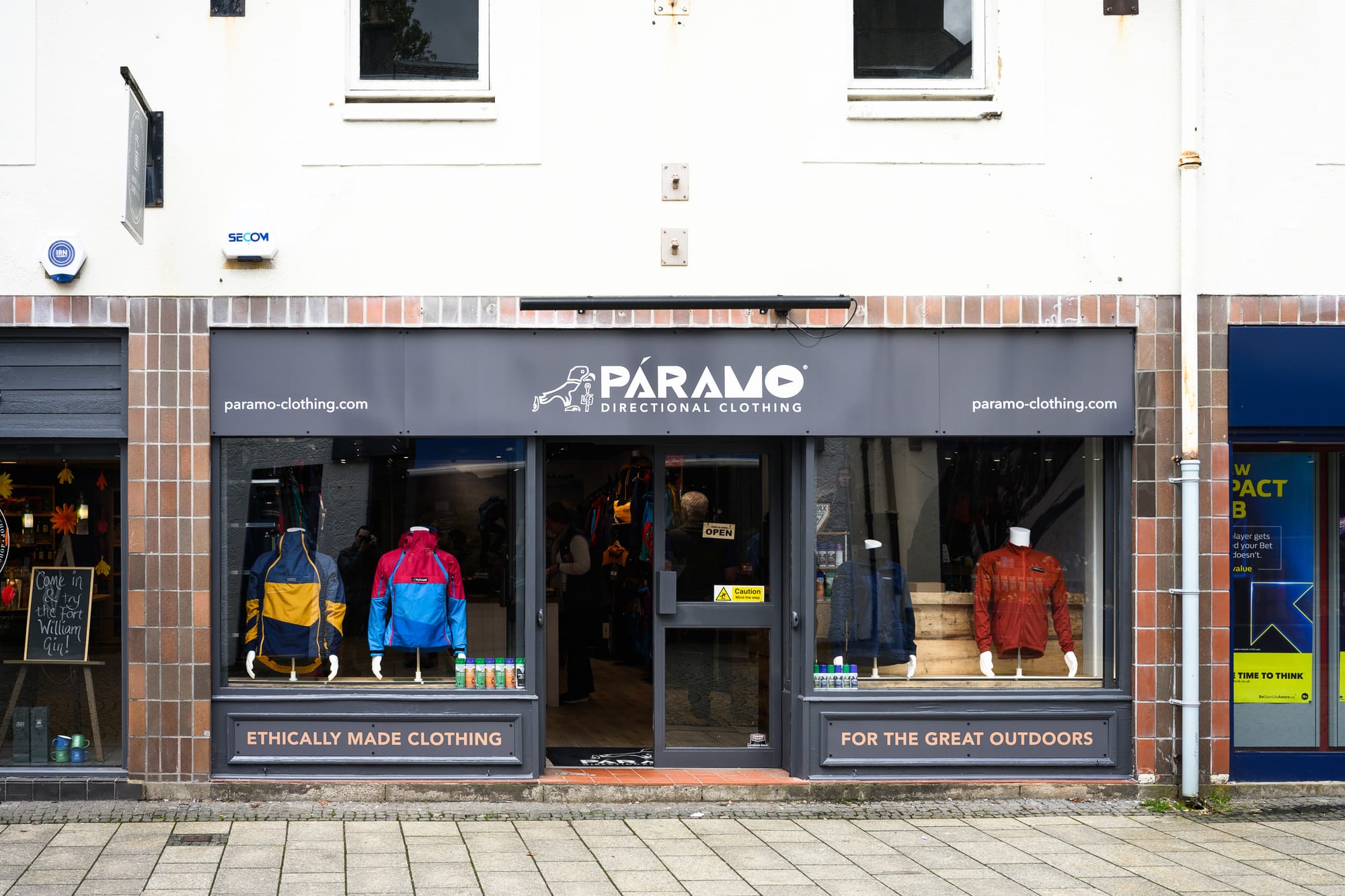
The shop is well situated on the high street in Fort William. I met up with my friend Davy Wright, who was also attending the event, and – cameras in hand – in we strolled to be greeted by Samantha, as well as the store staff who were working hard to get the stock and displays ready for the official opening.
The layout is simple and open, with large benches in the middle for demonstrations or fittings (or, on that day, nibbles). Everything is clearly geared around the goal of interaction between the customer and the expert staff. I'm not kidding there – the manager is a winter climber, and we chatted about ice climbing on the Ben. Ashley Saunders, an experienced seamster, spoke at length about the repair and recycling process. I had no idea that details such as the composition of zips could make such a difference.
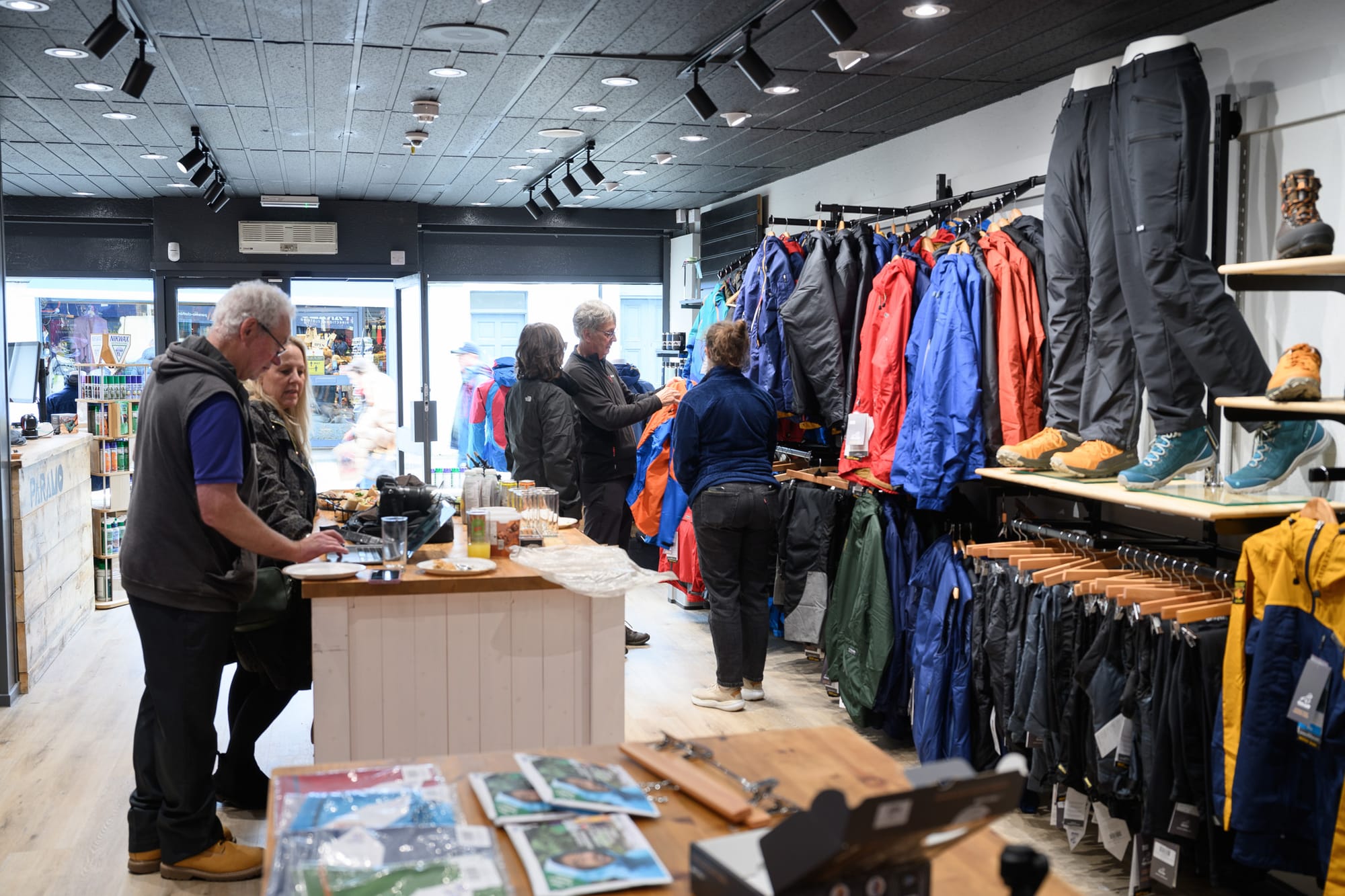
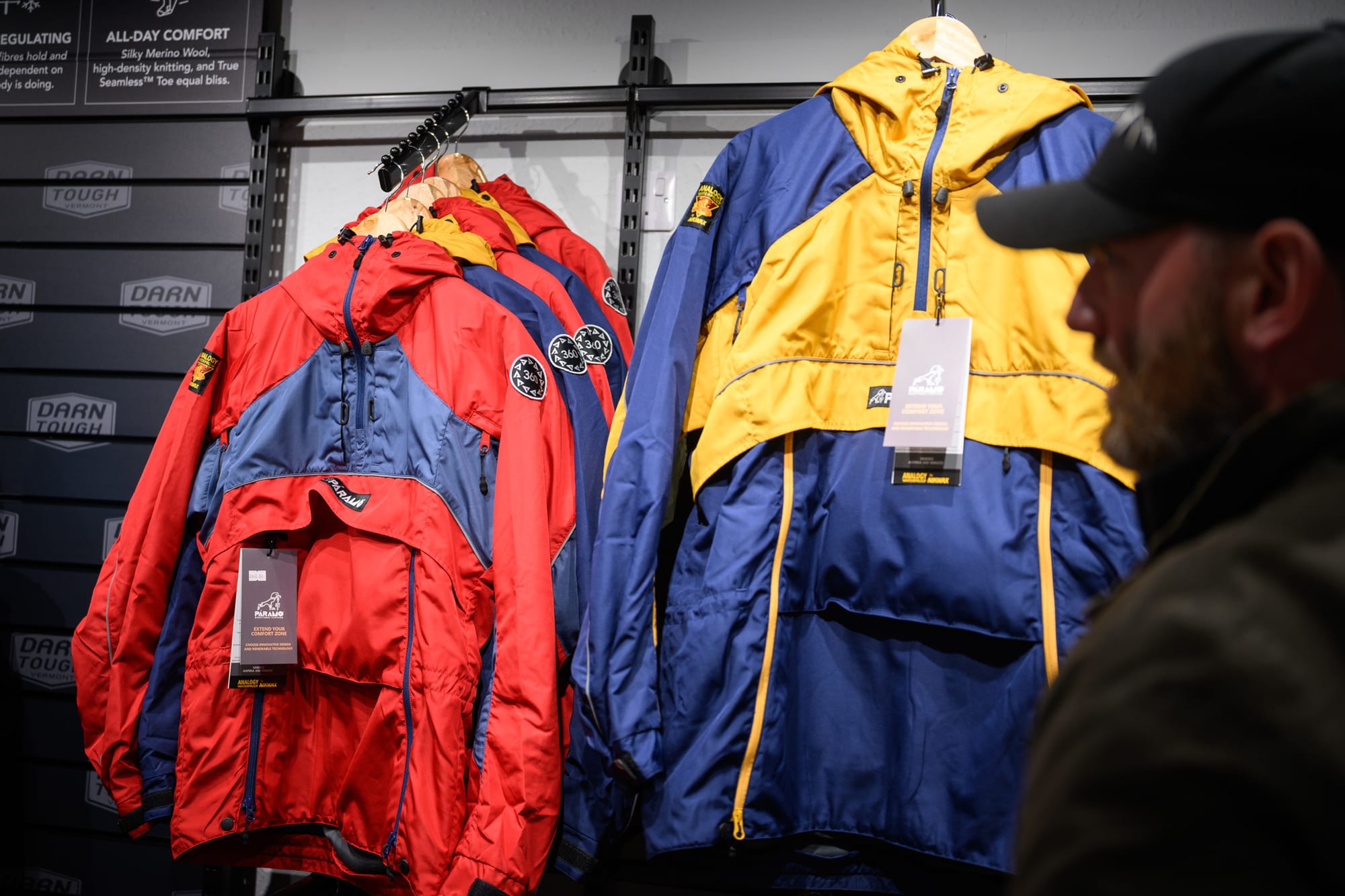
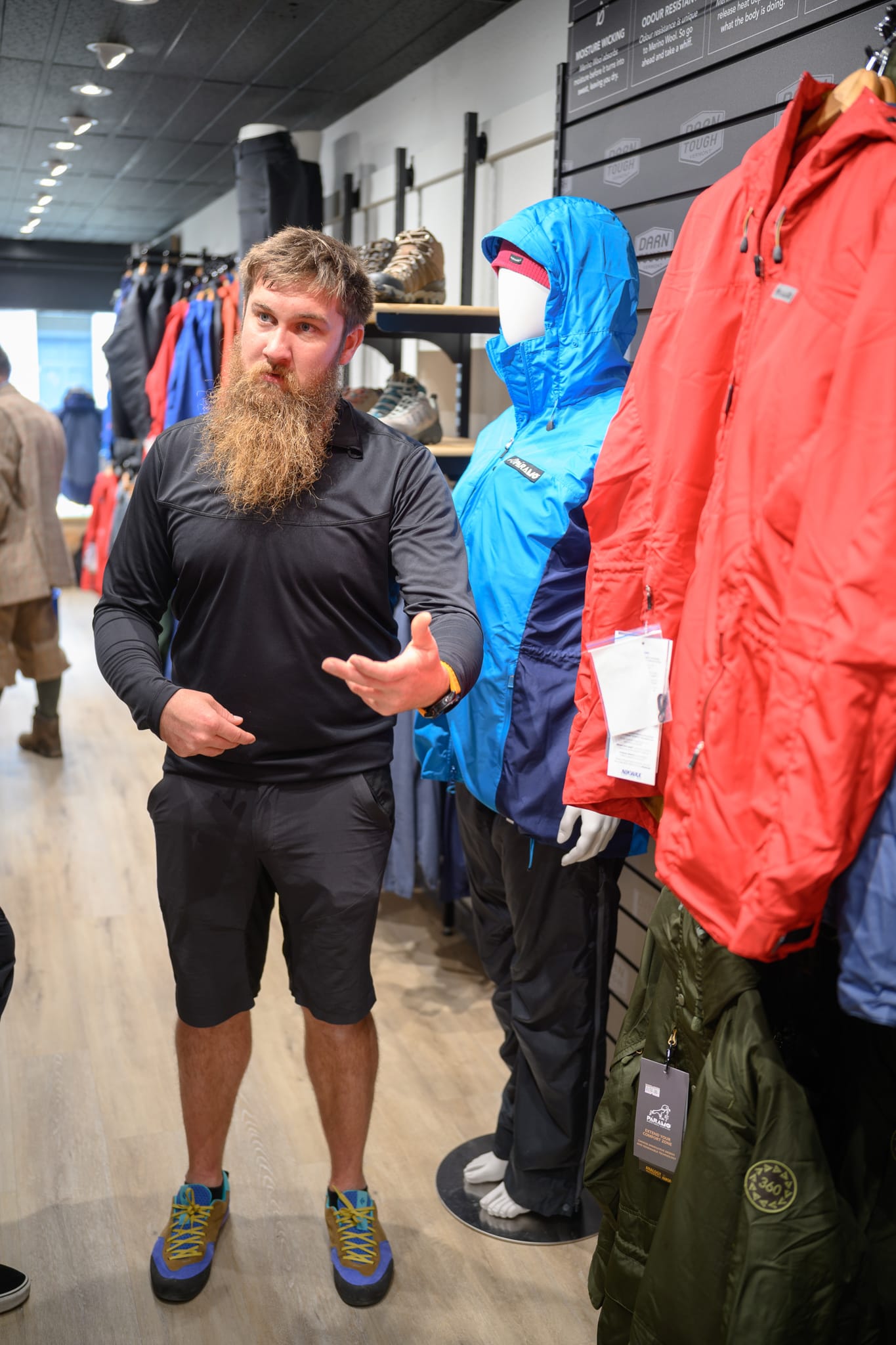
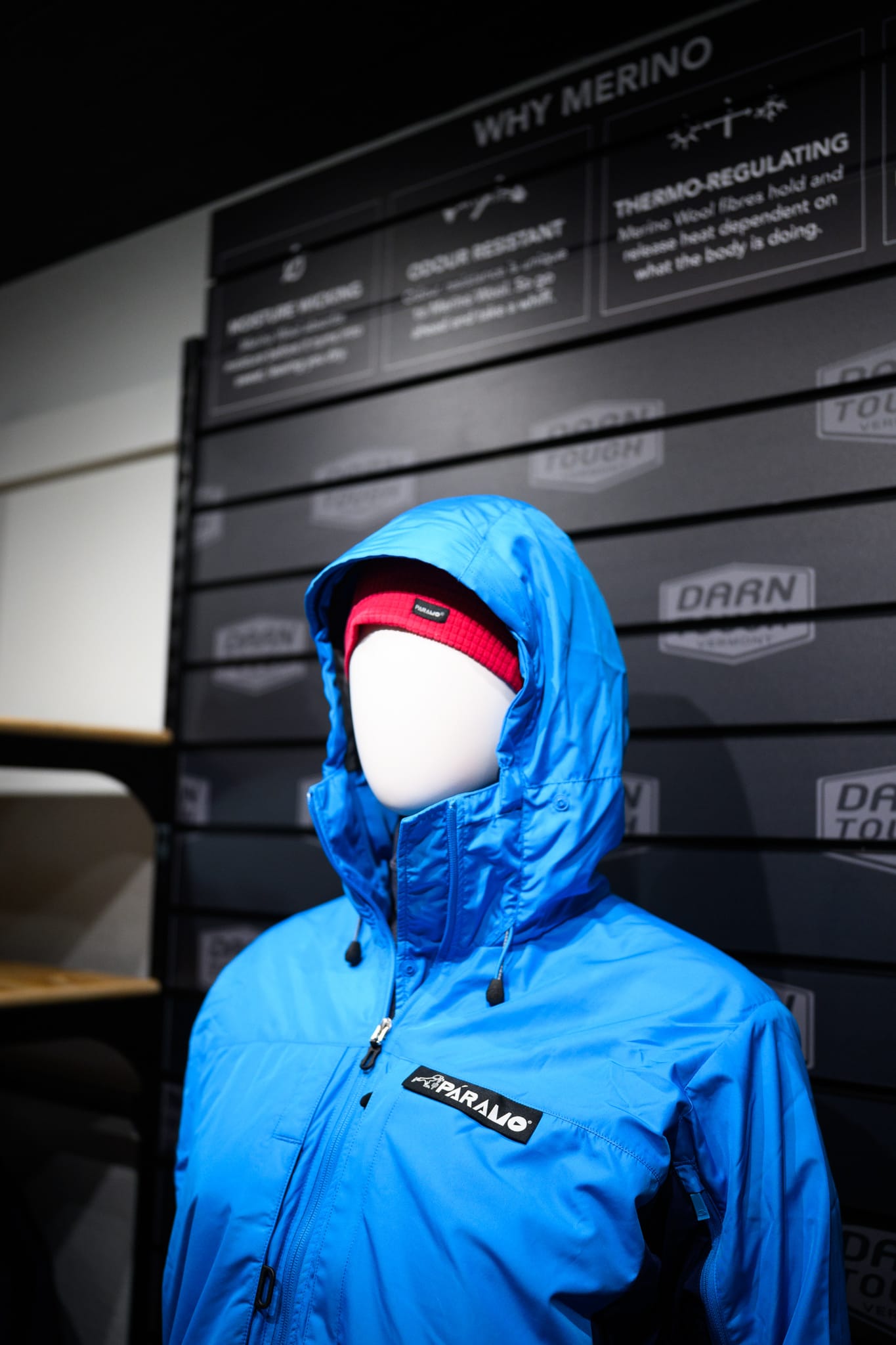
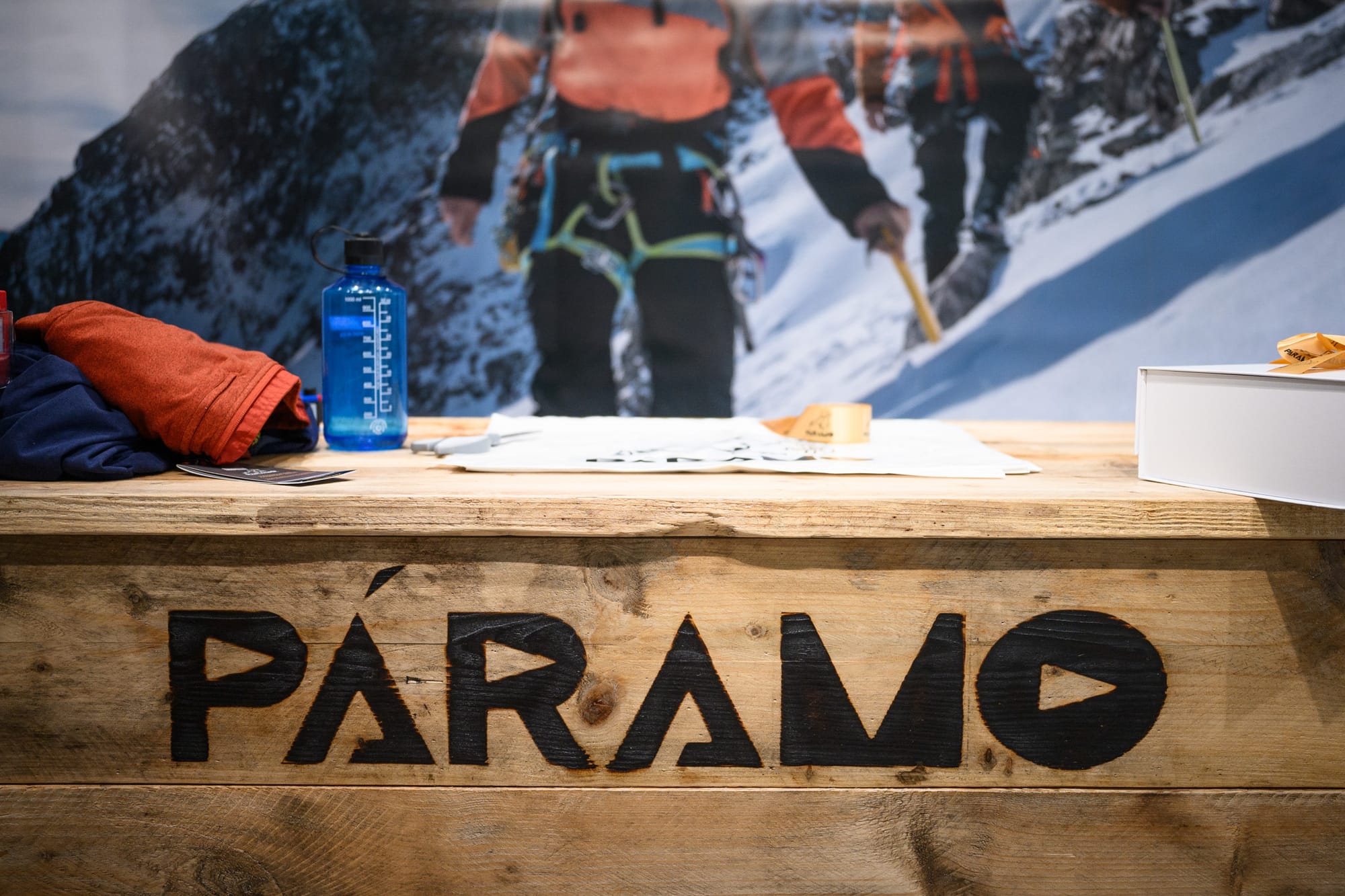
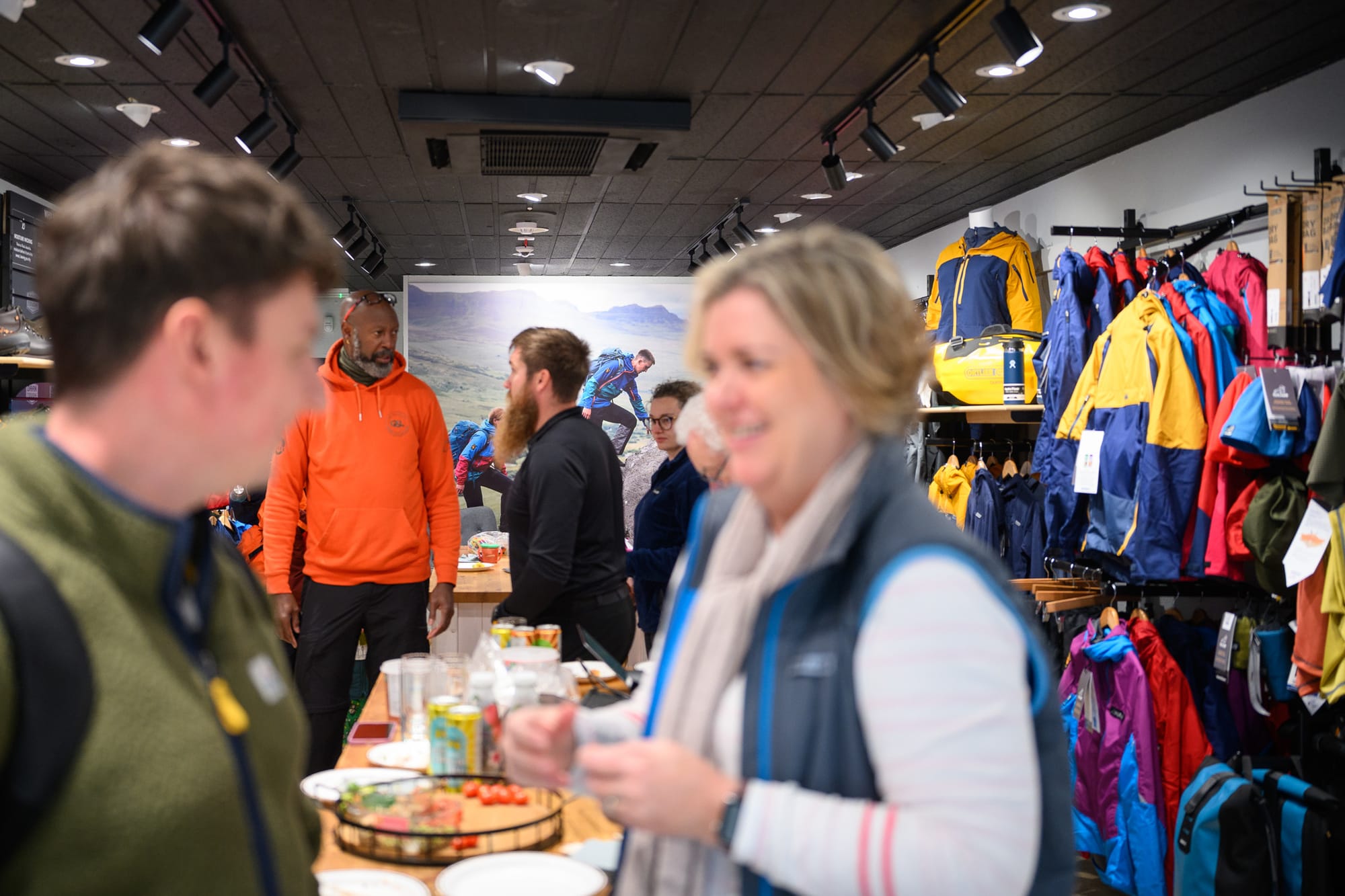
We also got the chance to try on pretty much every garment in the store, and had all our (many) questions answered! I was particularly taken with the Aspira 360° Smock – a new concept garment made with their new 100% recycled Pump Liner. It's very expensive to buy at the moment, but the brand sees it as a statement piece to show the rest of the industry where we should all be heading.
My view? Honestly, I wouldn't spend £600 of my own money on it. The Aspira is a much-loved favourite for winter use, but I find it too warm for summer, and for that kind of money I'd want a more versatile garment. However, I always try to spend a bit more on a product that I know is made well and will last a long time, and I do believe in putting my money behind my principles. Ultimately, people will need to get used to paying more for better quality. It's my hope that the days of cheap fast fashion will recede into the past.
Many thanks to Páramo for the invitation. I'll be testing out more of their gear over the coming winter season, and I can't wait to share my impressions as a gear reviewer.

Alex Roddie Newsletter
Subscribe here to receive my occasional personal newsletter in your inbox. (For the fun stuff, please consider subscribing to Alpenglow Journal instead!)


